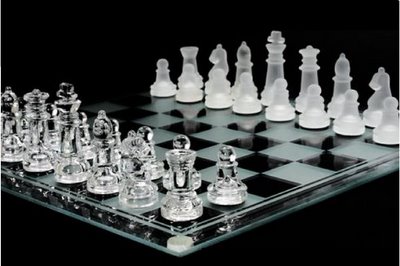How to manage time in chess?
The clock is a very important aspect of practical chess. You may be a very good chess player but lose a lot of games because you get short on time and make blunders as a result. In order to perform at your best, a good time management technique is required. What do I mean by that? Let’s say you have 75 minutes with 5-second delay for 40 moves and 30 minutes for the endgame (it is a typical time control for many tournaments). At this time control a player should spend just under 2 minutes per move for the first 40 moves.
Opening moves typically require less thought than complex middle-game positions. Let’s imagine that the first 10 moves of the game got into a familiar opening line and only require 1 minute to complete.
It means that now we have 74 minutes for 30 remaining moves, giving 2 minutes and 30 seconds for each move. Lesson? You got it: save time in the opening to have extra time for the middle-game calculation
There are basically 3 types of players who exist at chess:
Type 1
These are players who take literally 10-15 seconds per move.
They don’t calculate very deeply and rely mostly on their chess intuition. They check that there will be no obvious reply that refutes their move, and that’s basically how far they go.
What’s wrong with this type of player?
Yes, these are the guys who save most of their time but lose the game. How to play against these racers? The worst thing to do is try to keep up with their 10-second moves; you’ll probably make a mistake faster. The best thing to do is just to ignore their quick responses, treat them as a weakness and concentrate on the game taking normal time on your moves. I guarantee you that they will miss tactics or do something silly and lose the game if you just stay calm and take your time.
Type 2
These are the players who are complete opposites of Type 1. They will take forever to reply even when there are not so many choices to make. These players can take 10 minutes or more to think about what piece to retake with or what rook to place on an open file when it does not make much difference. They are complete perfectionists who spend 10 minutes per move trying to find the best response sacrificing all time.
What’s wrong with this type of player?
They don’t usually get in trouble when they still have time, but afterward, they end up with 2 minutes for 20 moves and wonder why they dropped the rook just 2 moves after they spend 10 minutes thinking where to place it.
How to play against these time-takers?
Again, the best strategy is to play chess at a normal pace not too quick and not too slow. Even if your opponent has 2 minutes for 20 moves you still should play at a normal pace. It would be a mistake trying to rush things and trying to run your opponent out of time by playing speed chess. You get into a dangerously excited state of winning and mistakes are very likely to occur. See the game below for proof.
Type 3
These are the players who don’t get in time trouble easily. Some players can naturally manage time well without much effort. However, it does not mean they never get in time trouble, it just happens less often.
Do not get upset if you have recognized yourself in the first two types. You should be glad you did because an identified problem is a half-solved problem.
If you fix the time management issue you will be a much stronger player than you are right now, isn’t that great? Okay, let’s talk about how to fix it…
Type 1 Fix
This one is easy; you just need to fix the problem of quick moves.
The easiest solution is to spend at least 1 minute, regardless of how simple and straightforward the move seems to be. Just spend more time thinking about the move and analyzing the position and the quality of your game will improve. To control how much time you take per move you can write down the time left on the clock after making each move.
When you learn a new habit of taking time on your moves, the old habit of “quick moves” will try to return. Fight it, spend some time analyzing, calculating, and thinking instead of playing quick, spontaneous moves and you will play better and you will win games.
Type 2 Fix
If you get in time trouble often you should track the time using the time management chart. You should plan in advance (before the game) approximately how much time you will be spending on each move.
Split the timesheet into multiple sections and draw a line after each one. For instance, you can separate the game into 4 sections before move 40 and estimate the time consumption for every single section(first 10 moves – 5 minutes, next 10 moves 20 minutes, and so on ).
During the game, you will not be able to follow your time plan precisely, but at least you will have an idea of how much you’re short (or ahead?) on time and it will save you many games!
Probably after some time of timekeeping you will feel the time better, and won’t need to do it anymore. If it’s the case, you succeed!
Ready to start winning games? Check out our store and articles:










Comments: